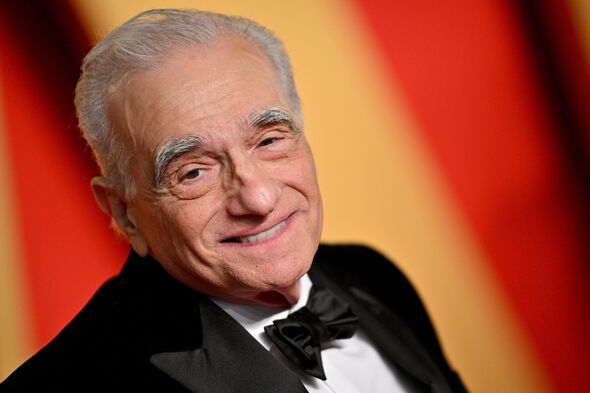
Martin Scorsese’s Struggle with Studio Pressure on Taxi Driver
Martin Scorsese, one of the most celebrated directors in Hollywood history, has shared a revealing moment from his career in an upcoming documentary. The film, part of a five-part series premiering on Apple TV+, explores the director’s journey through personal archives and interviews with colleagues who have worked with him for decades.
Scorsese’s story centers around the 1976 film Taxi Driver, which is widely regarded as a masterpiece. However, the director recalls how studio pressure to make the film more palatable led to intense emotional turmoil. According to fellow director Steven Spielberg, who appears in the documentary, Scorsese called him in a state of distress after studio executives demanded significant changes to the film's violent scenes.
Spielberg recounted receiving a frantic phone call from Scorsese. “Steve, Steve, it's Marty, Steve. Can you come over to the house?” he remembered Scorsese saying. The director was upset about the studio’s demands, specifically wanting to cut out all the blood spurting and even the scene where a character loses their hand.
When asked directly in the documentary whether he owned a firearm during this time, Scorsese denied having one but admitted to making threats about acquiring one. “I was going to get one,” he said. “But I wasn’t going to get it, really?”
The Oscar-winning director described his emotional state during this period as one of desperation and anger, which led to extreme rhetoric. “I was angry and said I'm going to threaten them or maybe just shoot or something, I had no idea, I mean I was threatening,” Scorsese explained. He also mentioned that he considered taking drastic action beyond just threatening. “What I wanted to do, and not with a gun, I would go in, find out where the rough cut is and break the windows and take it away.”
Scorsese’s frustration stemmed from his belief that studio interference would compromise his artistic vision entirely. “They're going to destroy the film anyway, you know, so let me destroy it,” he said. “I'll destroy it, but before destroying it, I'm going to steal it.”
This incident highlights the deep conflict between artistic integrity and studio control, a recurring theme in many filmmakers' careers. Scorsese’s willingness to confront these challenges head-on, even if only in words, shows the passion and dedication he has always brought to his work.
The Impact of Studio Interference on Creative Control
Studio interference is not uncommon in the film industry, but the extent to which it can affect a director’s vision is often underestimated. For Scorsese, the pressure to alter Taxi Driver was more than just a creative challenge—it was a personal battle. His reaction, though extreme, underscores the emotional weight that comes with artistic expression.
Many filmmakers face similar struggles when trying to maintain their original vision against the demands of producers and studios. These pressures can lead to compromises that may dilute the message or impact of a film. In Scorsese’s case, the potential loss of his original intent was enough to push him to the edge.
The Legacy of Taxi Driver
Despite the challenges, Taxi Driver remains one of the most influential films in American cinema. Its raw depiction of alienation, violence, and psychological turmoil continues to resonate with audiences. The film’s success is a testament to Scorsese’s ability to create powerful narratives that challenge viewers and provoke thought.
The documentary serves as a reminder of the sacrifices and struggles that go into creating great art. It also highlights the importance of preserving the original vision of a filmmaker, even in the face of external pressures.
Lessons from Scorsese’s Experience
Scorsese’s story offers valuable lessons for aspiring filmmakers and artists. It emphasizes the need for resilience, the importance of standing by one’s creative instincts, and the potential consequences of compromising artistic values. At the same time, it shows that even the most iconic figures in the industry are not immune to the pressures of the business side of filmmaking.
Ultimately, the documentary provides a deeper understanding of Scorsese’s journey and the challenges he faced. It also serves as a tribute to his enduring legacy and the impact of his work on the world of cinema.

Post a Comment